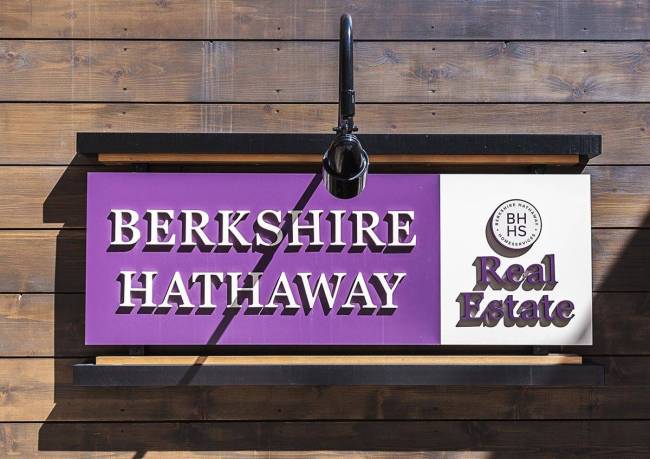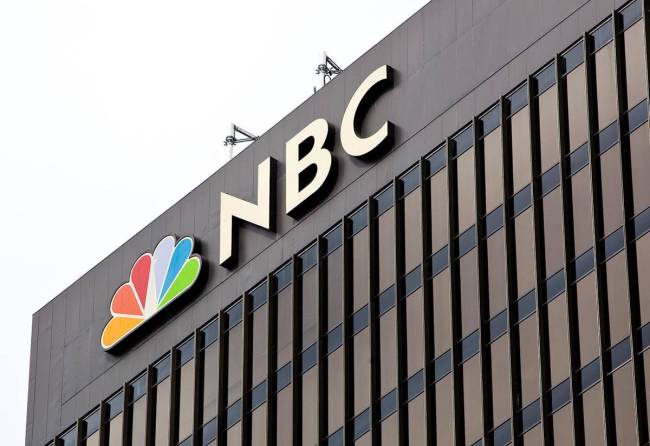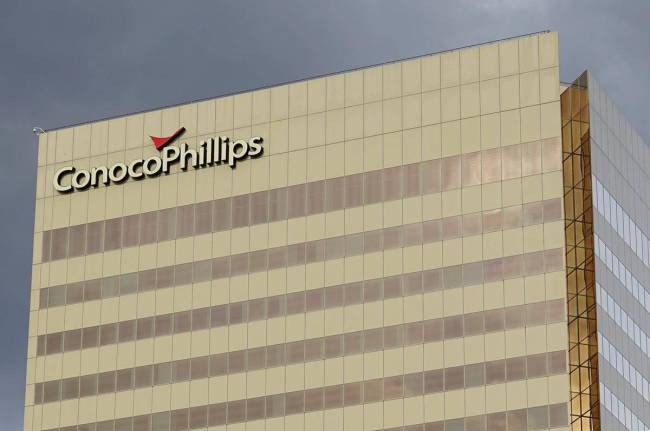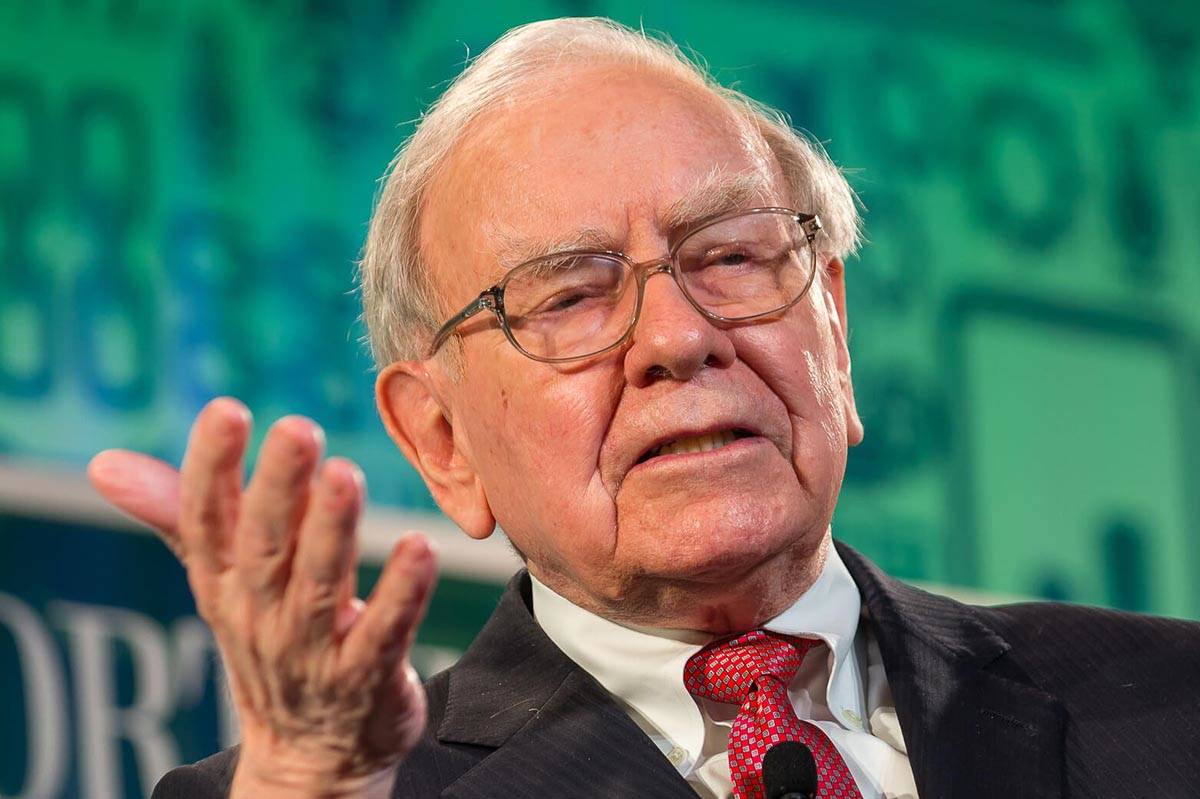What you can learn from Warren Buffett’s 15 biggest money mistakes
Warren Buffett is quite possibly the greatest investor of all time. For decades, the CEO of Berkshire Hathaway — nicknamed the “Oracle of Omaha” — has shown his ability to read Wall Street like a book. He has a net worth of nearly $89 billion, according to Forbes, making him one of the richest people on the planet.
Related: 11 ways that Warren Buffett lives frugally
Despite his investing prowess, he has made a few mistakes over the years — and he continues to make some major missteps. Unlike some executives who try to pass the blame to an underling, Buffett owns his errors and assumes full responsibility when he fails to deliver to shareholders. If you’re trying to sharpen your investing game, you might learn a lot from the past losses that have led to Buffett’s hard-earned wisdom.
Buying Berkshire Hathaway
In a 2010 interview with Becky Quick on CNBC, Warren Buffett said the dumbest stock he ever bought was — drum roll, please — Berkshire Hathaway.

Buffett explained that he first invested in Berkshire Hathaway in 1962 when it was a failing textile company. He thought he would make a profit when more mills closed, so he loaded up on the stock. Later, the firm tried to chisel Buffett out of more money. A spiteful Buffett bought control of the company, fired the manager and tried to keep the textile business running for another 20 years. Buffett estimated that this vindictive move cost him $200 billion.
The investment advice here is not to let emotions factor into your financial decisions.
2020 in review: The year for Warren Buffett
Despite regretting the purchase of failing textile company Berkshire Hathaway in 1962, Buffett did the same thing 13 years later when he purchased Waumbec Mills — another New England textile company.
“The purchase price was a bargain based on the assets we received and the projected synergies with Berkshire’s existing textile business,” Buffett wrote in his 2014 shareholders letter.
Admitting his mistake, Buffett revealed his decision to buy Waumbec was a terrible one, as the mill had to be shuttered not too many years after Berkshire acquired it in 1975.
The chief lesson from Buffett’s poor investment in Waumbec is to learn from your previous mistakes. When making investments, if at first you don’t succeed, move on to a new strategy.
Learn: How To Invest In Stocks Like Warren Buffett Without Millions of Dollars
Investing in Tesco
Berkshire Hathaway owned 415 million shares of U.K.-based grocer Tesco at the end of 2012. The firm sold some stock but remained heavily invested. In 2014, the grocer overstated its profits and shares tumbled.
In his 2014 letter to shareholders, Buffett said concerns about Tesco management motivated his initial sale of stock, which resulted in a $43 million profit. Unfortunately, he didn’t move quickly on the rest.
“An attentive investor, I’m embarrassed to report, would have sold Tesco shares earlier. I made a big mistake with this investment by dawdling,” Buffett wrote. He admitted the move cost the company a $444 million after-tax loss.
The lesson from this piece of Warren Buffett history is to make decisions promptly.
Read: These 15 billionaires got richer during the pandemic
Purchasing Dexter Shoe Co.
In 1993, Warren Buffett purchased Dexter Shoe Co. for $433 million in Berkshire Hathaway stock. In his 2007 letter to shareholders, Buffett explained the poor decision, admitting it cost investors $3.5 billion. At the time, this was 1.6 percent of Berkshire Hathaway’s net worth. He had assessed the company as having a “durable competitive advantage,” but that apparently vanished within just a matter of years.
“To date, Dexter is the worst deal that I’ve made. But I’ll make more mistakes in the future — you can bet on that,” Buffett wrote.
The worst of Warren Buffett’s stock picks underscores a key lesson: A company is at its best if it has a viable competitive advantage. If there’s no solid reason for customers to continue patronizing a brand, it’s likely destined for failure.
Using Berkshire stock to buy Dexter Shoe Co.
Warren Buffett hasn’t held back with his regrets over buying Dexter Shoe Co., but in his 2014 letter to shareholders, he expressed frustration over how he paid the $433 million purchase price. Rather than giving the sellers cash, he used Berkshire shares to fund the purchase. At the time when he wrote the letter, he revealed that those shares were valued at $5.7 billion.
“As a financial disaster, this one deserves a spot in the Guinness Book of World Records,” he wrote.
You’re probably not buying and selling million-dollar companies, but you can learn from Buffett’s mistake by ensuring your resources are properly allocated. If your current portfolio is performing well, don’t pull money from solid investments to take a chance on a wild card.
Taking on debt From Energy Future Holdings
In his 2013 letter to shareholders, Buffett explained his debacle with Energy Future Holdings. The equity owners ponied up $8 billion and borrowed even more.
“About $2 billion of the debt was purchased by Berkshire, pursuant to a decision I made without consulting with Charlie,” Buffett wrote, referring to Charles Munger, Berkshire Hathaway vice chairman.
Buffett correctly predicted Energy Future Holdings would file for bankruptcy. He said Berkshire Hathaway sold its holdings for $259 million in 2013, but not before suffering an $873 million pre-tax loss.
The lesson of this Warren Buffett loss is to run big decisions by a business partner or trusted confidant before diving in headfirst.

Not buying the Dallas-Fort Worth NBC station
Not all Warren Buffett advice stems from financial losses — he’s also had some missed opportunities. One of his regrets is not buying the Dallas-Fort Worth NBC station for $35 million.
In his 2007 letter to shareholders, Buffett explained that he passed up the chance to purchase the station around the time he bought See’s Candies in 1972. He turned down the offer despite wholeheartedly trusting the person who made it, knowing there was excellent growth potential and it would require essentially no capital investment.
Reminiscing about the missed opportunity, Buffett pointed out that the station earned $73 million pre-tax in 2006, and at the time he wrote the letter, it was valued at $800 million.
The moral of this story is to take advantage of a good opportunity when it comes knocking.
Take a look: The daily costs of living like a billionaire
Issuing extra shares of Berkshire Hathaway to buy General Reinsurance
The 1998 purchase of General Reinsurance (General Re) was initially not the best move for Warren Buffett’s investment strategy. Buffett eventually turned things around, but he does have some regrets.
“After some early problems, General Re has become a fine insurance operation that we prize,” wrote Buffett in his 2016 letter to shareholders. “It was, nevertheless, a terrible mistake on my part to issue 272,200 shares of Berkshire in buying General Re, an act that increased our outstanding shares by a whopping 21.8 percent. My error caused Berkshire shareholders to give far more than they received (a practice that — despite the Biblical endorsement — is far from blessed when you are buying businesses).”
The lesson here is to fix your mistakes the right way and enjoy the rewards of success.
Not performing proper due diligence when buying General Reinsurance
Multiple investment tips can be garnered from Warren Buffett’s acquisition of General Reinsurance.
In his 2001 shareholder’s letter, he offered more insights into the reason Berkshire Hathaway took such a large initial hit on the purchase. This included enduring underwriting losses, overlooking the possibility of terrorist attacks and failing to realize General Re didn’t have enough in reserve to pay losses from old policies. Berkshire Hathaway realized $800 million in losses from the latter in 2001.
The lesson here is to double-check the numbers and run them by several trusted advisors. You should always know what a worst-case scenario could cost you.

Buying a large amount of ConocoPhillips Stock
In his 2008 shareholders letter, Buffett wrote, “Without urging from Charlie or anyone else, I bought a large amount of ConocoPhillips stock when oil and gas prices were near their peak. I in no way anticipated the dramatic fall in energy prices that occurred in the last half of the year.”
Buffett spent just over $7 billion on 85 million shares of ConocoPhillips, but its market value at the time of the letter was only about $4.4 billion.
Warren Buffett mistakes like this one again emphasize the importance of consulting people you trust before making a major investment. Sometimes, getting a different perspective is the best way to see the big picture.
Failing to dig deep into Lubrizol Corp. Stock
In 2011, Warren Buffett and Berkshire Hathaway were under fire after it was revealed that David Sokol, then-chairman of several of the firm’s subsidiaries, pitched Lubrizol Corp. to Buffett as a potential takeover. The problem was that Sokol owned stock in the chemicals company.
Berkshire bought Lubrizol for roughly $9 billion, and Sokol earned a $3 million profit. Since he hadn’t disclosed his stock ownership to Buffett, this violated insider-trading rules.
Buffett didn’t realize his mistake immediately, but at the 2011 Berkshire Hathaway annual meeting, he admitted that he should have probed deeper with Sokol.
The investment advice to follow here is not to be overly trusting. Ask more questions than you think are necessary, because you can’t be too careful when your reputation is on the line.
Opting not to buy Amazon Stock sooner
In a February 2017 interview with “Squawk Box,” Buffett was asked why he’d never bought stock in Amazon. He admitted he didn’t have a good answer.
“Obviously, I should have bought it long ago, because I admired it long ago,” he said. “But I didn’t understand the power of the model as I went along. And the price always seemed to more than reflect the power of the model at that time. So, it’s one I missed big time.”
Warren Buffett’s investments never include businesses he doesn’t understand, which is both good and bad. Backing companies blindly is not a smart move, but shying away from them isn’t wise, either. Partnering with someone whose strengths differ from yours can help you avoid missing out on great opportunities.
In an effort to get with the times (and make some more money) as of May 2019 Berkshire Hathaway owns 537,300 shares of Amazon, worth about $947 million.
See: How Amazon changed our shopping habits — for better and worse
Purchasing US Airways stock
US Airways didn’t join the ranks of failed Berkshire Hathaway investments, but Buffett does regret his 1989 purchase of $358 million worth of shares in the now-consolidated airline.
The shares never appreciated, but after weathering turmoil, Forbes reported that Buffett likely got all his principal and dividends back. Buffett credited the airline’s rebound to both his and Munger’s exit from the board and the arrival of CEO Stephen Wolf. He praised the latter for saving what could’ve been a very costly investment.
The moral of the story is to research every investment before buying, so you know exactly what you’re getting into — whether you’re a beginning investor or a longtime pro.
Missing his chance to invest in Google
Warren Buffett’s portfolio doesn’t include Google stock, and that’s something he regrets. At the 2017 Berkshire Hathaway annual shareholders meeting, he told investors he made a mistake by not purchasing shares in the tech giant years ago when it was getting $10 per click from Geico — which is one of Berkshire Hathway’s subsidiaries.
Buffett has shied away from tech stocks in the past because he didn’t understand their models. Still, he said he should have figured them out because he was effectively a client of the Google ad business.
What you can learn from this mistake is not to overlook investment opportunities right under your nose.
Overestimating select manufacturing, service and retail investments
In his 2015 shareholders letter, Warren Buffett highlighted the depth of Berkshire Hathaway companies in the fields of manufacturing, service and retail operations, noting that some businesses in the firm’s portfolio have poor returns, and he considers those serious mistakes.
“In most of these cases, I was wrong in my evaluation of the economic dynamics of the company or the industry in which it operates, and we are now paying the price for my misjudgments,” he wrote. “At other times, I stumbled in evaluating either the fidelity or the ability of incumbent managers or ones I later appointed.”
What you can learn from Buffett here is not to jump into investments blindly. If you’re not intimately familiar with a company, pass on it or seek advice from a trusted expert.
Despite his mistakes, the Oracle of Omaha is still one of the most successful investors of all time. Click through to find out the steps you can take to become the next Warren Buffett.
More From GOBankingRates
20 home renovations that will hurt your home’s value
Everything you need to know about taxes this year
What income level is considered middle class in your state?
The average retirement age in every state
Gabrielle Olya contributed to the reporting for this article.
This article originally appeared on GOBankingRates.com: Warren Buffett’s 15 biggest money mistakes — and what you can learn from them


















